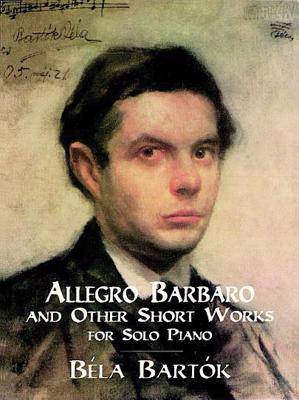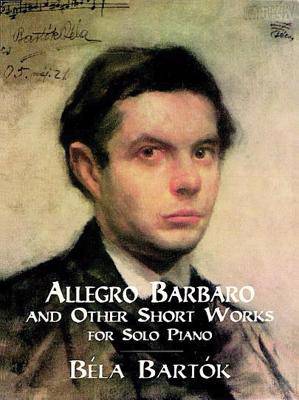
- Retrait gratuit dans votre magasin Club
- 7.000.000 titres dans notre catalogue
- Payer en toute sécurité
- Toujours un magasin près de chez vous
- Retrait gratuit dans votre magasin Club
- 7.000.000 titres dans notre catalogue
- Payer en toute sécurité
- Toujours un magasin près de chez vous
Description
An outstanding authority on the folk music of Central and Eastern Europe, Hungarian composer Béla Bartók (1881-1945) explored the melodic, harmonic, and rhythmic vocabulary of these regions, evolving a terse, vibrant, and unique musical language in his own works.
This important compilation of Bartók's short works for piano contains the Allegro Barbaro, a sonorous, boisterous piece of power and bravura; 6 Romanian Folk Dances; 20 Romanian Christmas Carols; 15 Hungarian Peasant Songs, a connected cycle of short folk-tune settings; the 4-part Suite, Op. 14; the Three Etudes, Op. 18; and 8 Improvisations on Hungarian Peasant Songs, Op. 20. Highly dissonant, individual, and marked in character, the tunes in the connected cycle of the Improvisations represent a high point in Bartók's treatment of folk materials.
These short pieces are an ideal and fully representative introduction to the music of one of the most influential composers of the twentieth century -- an attractive repertoire for intermediate and advanced pianists.
Spécifications
Parties prenantes
- Auteur(s) :
- Editeur:
Contenu
- Nombre de pages :
- 112
- Langue:
- Anglais
- Collection :
Caractéristiques
- EAN:
- 9780486401102
- Date de parution :
- 04-03-98
- Format:
- Livre broché
- Format numérique:
- Trade paperback (VS)
- Dimensions :
- 229 mm x 303 mm
- Poids :
- 317 g







